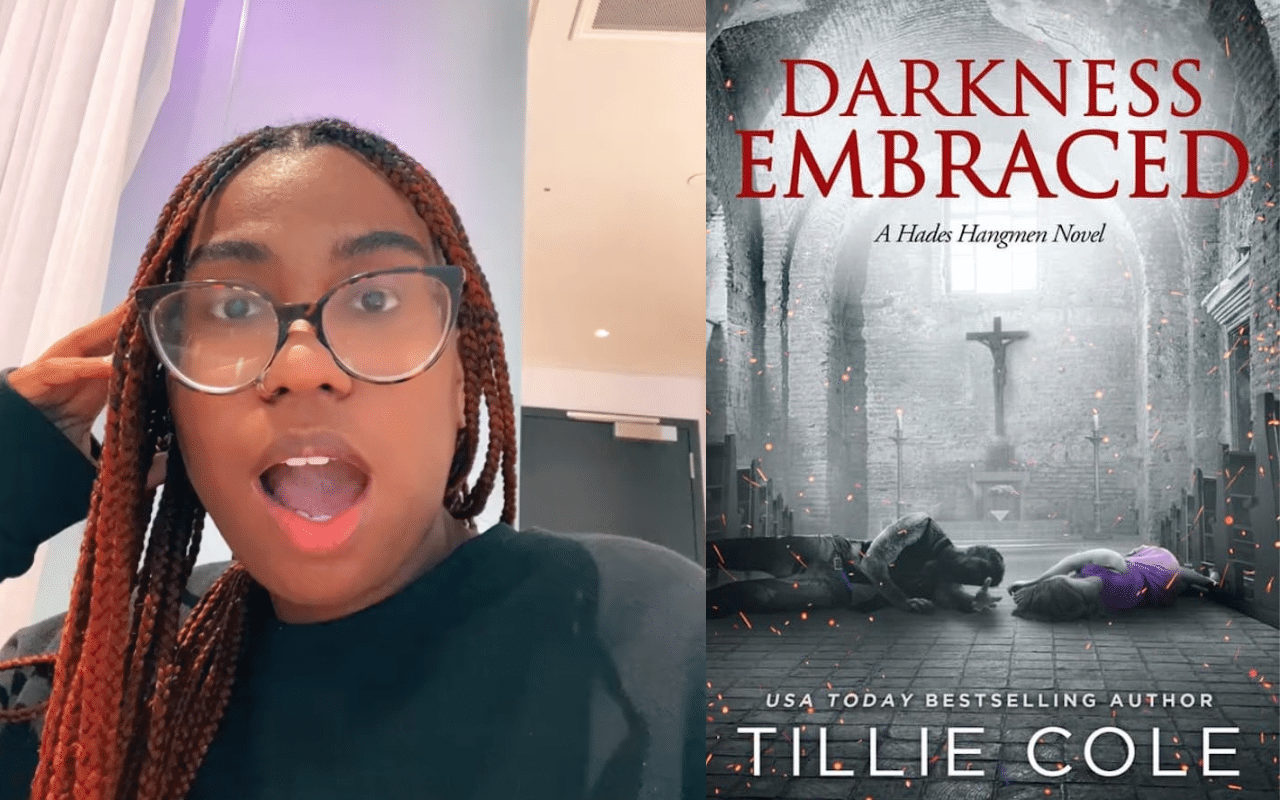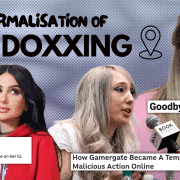
Updated: November 7th, 2023.
BookTok is currently scrutinising one of the most well-known authors within its niche.
Tillie Cole, the author of the BookTok-famous novel A Thousand Boy Kisses, is facing allegations of racism and white supremacy. Numerous TikTok users have taken to the platform to call out Cole for her dark romance novel Darkness Embraced, published in 2019.
author tillie cole (known for the books sick fux, a thousand boy kisses, & it ain’t me babe) wrote a book about a kkk member (the li) & used the white supremacist organization for the plot of her book, overall romanticizing it. when an ig user called her out, tillie blocked her. pic.twitter.com/yXHGbIssuW
— mads 🇵🇸 (@iurlocalpozer) November 2, 2023
The book is the seventh instalment of Cole’s ‘Hades Hangmen Series’ and chronicles the love story of characters Tanner Ayers and Adelita Quintana.
While Tanner and Adelita’s relationship is complicated (as is common in many romance novels), TikTok users believe Cole has taken it too far. Tanner is the “heir of the Texas Ku Klux Klan,” while Adelita is “the daughter of the most brutal cartel boss in Mexico.”
With a vehemently white supremacist organisation at the heart of the novel, it’s no surprise that internet users are criticising Cole for romanticising such a group and using it to propel the plot forward. To make matters worse, two other books (Beauty Found and Damnable Grace) in the Hades Hangmen Series appear to have ties to the KKK.
@bratzlibrary romances** not just one😭😭 glad i never bought a thousand boy kisses #booktok #bookish #books #booktoker #bookworm #bratzlibrary #tilliecole #athousandboykisses #itaintmebabe #hadeshangmen
♬ original sound – brat
TikTok user @satrayreads appears to be the first creator who called Cole out. However, her initial TikTok — along with some follow-up videos addressing the situation— have been removed from the platform.
In one of the now-deleted TikToks, Sat read the book’s blurb, questioning why Cole platformed the KKK in this manner and why she decided to use a Latina woman for Tanner’s “redemption arc.”
Following Sat’s lead, others on the short-form video app have criticised Cole for the language in the book, pointing out that Darkness Embraced (as well as the entire series) is rife with racist and anti-Semitic expressions.
TikTok user @urbae92 posted excerpts from the novel, questioning why “nobody said anything” sooner. They also shared the book’s ratings on Goodreads, shocked that many people have endorsed and enjoyed the novel.
At the time of publication, Darkness Embraced holds a score of 4.33 out of 5 on Goodreads.
@urbae92 NOBODY SAID ANYTHING EITHER #booktok #tilliecole
♬ som original – isa ✩
Since speaking out against Cole, Sat has started receiving hate from the author’s supporters.
However, many TikTok users have come to the creator’s defence, reiterating that “under absolutely zero circumstances is it okay to romanticise white supremacy and racism.”
@the_thrilling_thot Dark romance community – what the heck #tilliecole #darkromance #darkromancebooks #booktok #hoodfeminism #whitefeminism
♬ original sound – Thrilling Book Thots
Sam of @expertbooksmuggler and Sylvia of @bookedwithsylvia have both made TikTok videos speaking to the lived experience of Mexican people, offering further insight into why this novel is problematic.
Sam reflected on her upbringing as the daughter of a “racist white man from Texas” and a Mexican woman. Much like Sat, Sam also criticises Cole for positioning Adelita— a victim of white supremacy— as the one who “saves” Tanner from the KKK.
“These men do fall for these women. Mexican women are often seen, in my experience, as acceptable and exotic whenever they choose them [but] they continue to be racist to them, and they continue to oppress them. It doesn’t change,” Sam says.
Note: Sam has since put her account on private. This video is no longer publicly accessible.
In a similar vein, Sylvia condemns the author for “fetishising” Mexican women and culture.
“Y’all love to read about Mexicans and write about Mexicans in your fictional books and fictional worlds, but in real life, y’all don’t even want to touch a book by a Mexican author,” Sylvia begins. “[When] a Mexican author writes a book about our culture and respects our culture… y’all don’t want to read those books.”
@bookedwithsylvia Watch @satrayreads video on this too @satrayreads #booktok #bookcommunity #bookedwithsylvia #spicybooktok🌶️ #steamyromance #tilliecole
♬ original sound – Sylvia | BookTok 🇲🇽✨
Sylvia’s video points to an issue that has plagued BookTok since its inception: the underrepresentation of authors of colour and novels that meaningfully capture the lived experience of racial minorities.
“Almost every author who has found life-changing success via the platform — six- and seven-figure book deals, weeks and months spent on best-seller lists, headline-making movie contracts — is white,” Tyler McCall writes for The Cut.
This racial bias isn’t unique to BookTok’s corner of the app, but the publishing industry has certainly exacerbated it. While there has been a push for diversity in recent years, white authors, editors and characters continue to dominate the space. And with TikTok’s algorithm prioritising who and what is already popular, it becomes harder for minority authors to break through.
“The same thing that makes BookTok so powerful — TikTok’s much-vaunted, top-secret algorithm — is also what causes the lack of diversity,” McCall goes on to write. “TikTok creates an echo chamber that incentivises users to keep something popular in the conversation rather than create content about something new.”
But as creators hold Cole accountable for exploiting white supremacy and racism, there’s hope that the BookTok community will platform minority authors and narratives that delve into (legitimate) experiences of marginalised groups.


